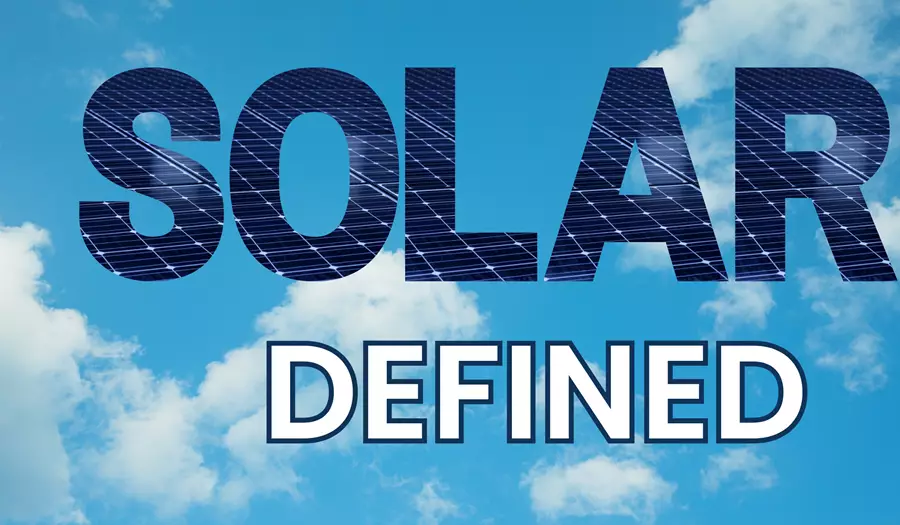Solar energy: Solar energy is the light and heat that come from the sun. That energy can be harnessed and used to provide electricity to homes and businesses that’s less costly, and far more environmentally desirable, than traditional methods.
Electric (or electricity or utility) grid: An electric grid is a network that connects people who need electricity to the companies that provide it. The overall grid includes every step from the source that produces the electricity to the end user whose appliances run on it. If you’ve seen power plants or high-voltage power lines alongside a road somewhere—and nearly everyone has—you’ve seen part of the electric grid in action. A strong electric grid is comprised of multiple forms of energy, including solar, wind, and nuclear energy. Today, several traditional utility companies are working to add renewable energy to their grids.
Renewable energy: As the term implies, this is a source of energy that won’t run out because it’s self-replenishing. There are different types of renewable energy, including solar, wind, and even tidal energy. This contrasts with nonrenewable energy sources, which include coal, natural gas, oil, and nuclear energy. There is a finite amount of nonrenewable energy sources, and when they’re gone, they’re gone—unlike solar energy.
Kilowatt hour: This is a term that’s easy to be confused about. “Kilowatt (kW)” and “kilowatt hour (kWh)” are related, but ultimately mean different things. They’re both a form of measurement. A kilowatt measures the rate at something, such as a refrigerator, uses electricity. The kilowatt hour measures the total amount of energy that’s used by that refrigerator.
Utility companies usually charge for energy consumption by the kilowatt hour, but charge for peak power demand (times when electrical energy is used by the most people at the same time) in kilowatts.
Solar panels: These are devices, also called photovoltaic (PV) panels, that convert energy from the sun into power that can be used where solar panels have been installed. There are upfront costs and construction needs, and the panels need regular maintenance. Not all locations can support solar panels.
Community solar: The Solar Energy Industries Association defines community solar as a way for people to receive credits on their electric bills for the power produced from their portion of a solar array, which offsets their electricity cost. It doesn’t involve solar panels, upfront costs, installation, or maintenance. Instead, solar farms provide electric companies with solar energy that allows homes and businesses to choose renewable energy while reducing their electric bills.
Solar energy credits: These are incentives that reward renewable energy use, whether from signing up for community solar, buying energy-efficient appliances, or purchasing electric vehicles. They usually appear in the form of a tax credit, rebate, or a credit on utility bills.
Inverter: This is a device that converts direct current (DC) electricity (produced by solar panels) into alternating current (AC) electricity, which is the type used by most appliances and the utility grid.
Net Metering: Net metering is a system that allows homeowners to sell excess solar power back to the grid, effectively running their electric meter backwards.
Virtual Net Metering: This type of net metering allows multiple participants to share the benefits of a single, centrally located solar system. The participants receive credits on their electricity bill as if the system were located at their home or business.
Solar Array: A solar array is a grouping of multiple solar panels connected together, either on a building or in a field along a road.
Now that you have some background on solar vocabulary, are you ready to find out how community solar can benefit you? Click here to find a solar project in your area.


.png)

.png)